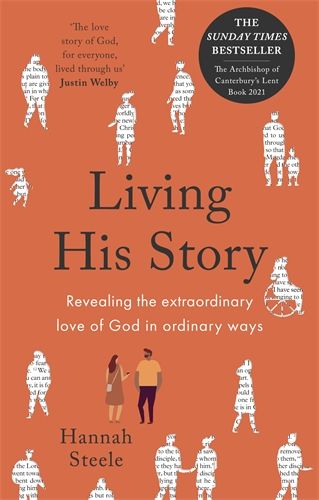I am looking forward to our discussion this evening of Chapter 2 “Catching up with God” of Dr. Hanna Steele’s book Living His Story.
The Parable of the Sower:
In the second part of Chapter 2, Dr. Steele invites us to consider the parable of the sower (Matt. 13:1-23). Please take the time to read the parable now. In the parable, the farmer disburses his seeds liberally, generously, and without hesitation. The seeds go everywhere – on the path, in the rocks, in the thorns, and in the field. The seeds, however, only take good root and produce fruit when they are sown in good soil. But unlike a good farmer, the sower is indiscriminate in his sowing. No farmer would scatter his precious seeds everywhere. The parable offers us two ways of considering evangelism.
The Sower as a Template:
The first way this parable is relevant is that it provides us with a template for evangelism. Like the sower, we too should be indiscriminate. We do not know who is ready to receive the word. Ours is to spread the word, not to prejudge the area into which the seed falls. Likewise, we must understand that there are times (maybe most of the time) that we too will sow without a harvest. The parable tells us that we are never assured that our evangelism will ever bear fruit. We may be sowing in the path or on the rocks or in the thorns. But even during his ministry, Jesus was not always successful. On Good Friday, it appears that even the seeds sown among the Twelve had failed to bear fruit
The Sower as the Missio Dei:
The second way this parable is relevant is to understand that God is the sower, not us. God is actively sowing the Word and God is sowing the Word throughout the world. Dr. Steele writes about the missio Dei or mission of God. (pp.34, 46). This is the idea that God is the initiator of mission and evangelism, not us. We are merely witnesses to what God is doing in the world. As witnesses, our task is to be on the lookout for the ways that God is already working. Our task is to discern how God is sowing in others’ lives and to become a part of that process.
Discussion Questions:
At the conclusion of her chapter, Dr. Steele asks us the following questions:
1. Have you ever felt that you were just the person God wanted in a particular situation? Did later events confirm that in some way?
2. How do you think you might become more aware of God at work in relationships and conversations you are involved in?
3. Who might be regarded as ‘the least’, ‘the lost’, and ‘the law-breaker’ in your community, area, workplace (or even closer to home)?
Dinner is at 6:30. The menu is St. Patrick’s Day (observed). Discussion about 7:15. Hope to see you here.
For we are his workmanship, created in Christ Jesus for good works, which God prepared beforehand, that we should walk in them.
Ephesians 2:10

